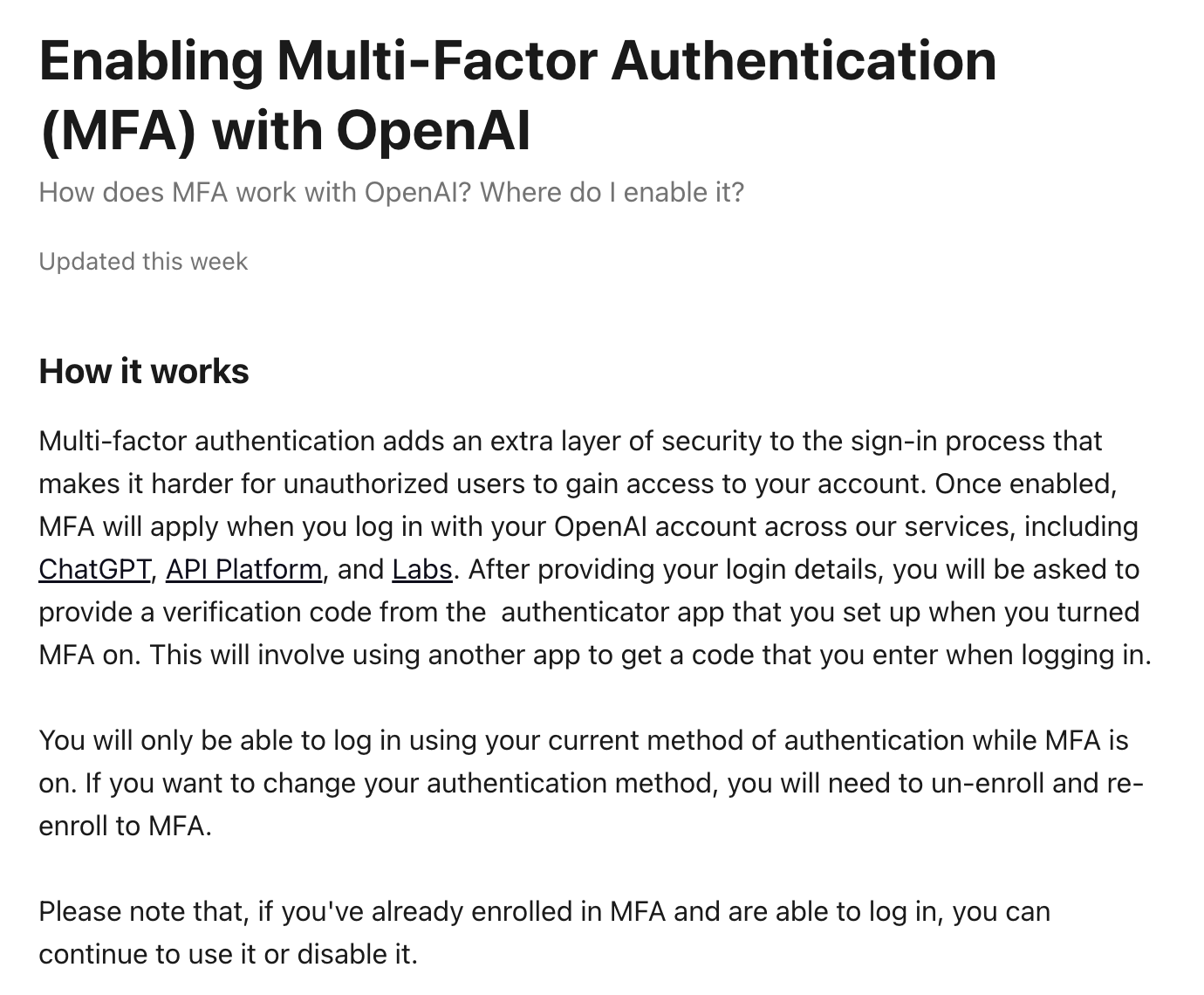OpenAI Introduces Multi-Factor Authentication for AI Conversations
Is your OpenAI account safer now?
ChatGPT Account Security Enhanced Further: OpenAI Introduces Multi-Factor Authentication for AI Conversations
link: Enabling Multi-Factor Authentication (MFA) with OpenAI
OpenAI has enabled multi-factor authentication (MFA) for ChatGPT to improve account security.
Multi-factor authentication requires users to provide an additional factor of authentication, such as a verification code, in addition to the password when logging in.
Users can enable MFA in their ChatGPT account settings, generating verification codes through authenticator apps like Google Authenticator.
With MFA enabled, even if someone obtains the account password, they cannot log in without the second factor of authentication, significantly reducing the risk of account misuse.
OpenAI has introduced MFA not only on ChatGPT but also on other services like the API Platform and Labs, comprehensively strengthening user account security.
My Commentary
Multi-factor authentication is an important means of protecting online account security. In today's cybersecurity landscape, relying solely on passwords is insufficient against hacking attacks, and MFA provides necessary additional protection.
AI services like ChatGPT involve users' private data and usage preferences, making account security especially important. OpenAI's timely update on security measures is commendable and helps enhance user trust.
While enabling MFA may affect login convenience to some extent, it is worthwhile compared to account security. Users should proactively enable MFA and use more secure authenticator apps rather than receiving SMS verification codes.
Technically, MFA is not foolproof. If a user's authenticator app or device is also stolen, there is still a risk of account theft. Therefore, MFA can only serve as one line of defense, and attention to password strength and other security measures is necessary.
OpenAI's implementation of MFA across multiple services demonstrates its commitment to user account security. This may serve as a benchmark for other tech companies and online services, promoting MFA as the industry best practice for protecting online accounts.
Although MFA enhances security, it may exacerbate "security fatigue," leading users to take shortcuts or give up when setting up and using MFA. Providing a user-friendly and convenient MFA experience is crucial.
With the widespread adoption of MFA, hackers may shift their focus from passwords to authenticator apps and user devices. Therefore, the implementation of MFA may give rise to new security threats that need to be addressed proactively.
Overreliance on MFA might weaken users' security awareness. Even with MFA protection, users should still develop good password habits and security behaviors, such as not repeating passwords across multiple websites.




